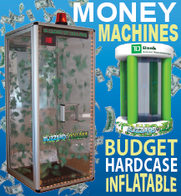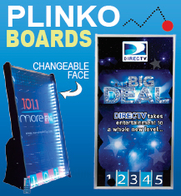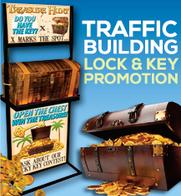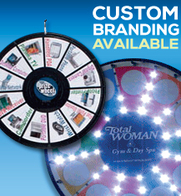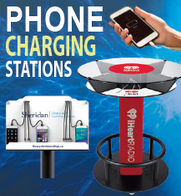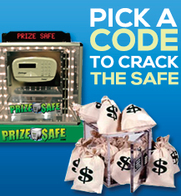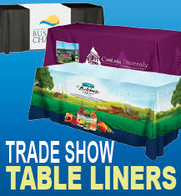During a recession, the first thought that goes through every trade show exhibitor’s mind is how he or she will survive the inevitable downturn in sales. After all, everyone is tightening their belts. Consumers are keeping their wallets in their pockets. The businesses that sell to those consumers are adjusting their budgets accordingly. Most trade show exhibitors, often a few tiers away the economic epicenter, see the coming storm and react rather than anticipate. In many ways, your competition is removing themselves from the field.
This is good news for trade show exhibitors who are willing to take the reins that market leaders abandon in a sluggish economy. Below, you’ll discover three reasons why you can thrive during the current recession.
#1 – Your Competitors Have Become Lazy
During an economic boom, improving your sales and revenue base is almost as simple as showing up to the convention hall. In some cases, this is exactly how many of your competitors thrived. They constructed their booths, put up their trade show displays, and attendees flocked to their exhibits. Everyone has budgets to spend when the economy is healthy. During an economic bust, those budgets dry up. Considering this a positive environment for your business might seem counterintuitive, but this is when opportunity rears its head.
Your trade show competitors may have been all but impossible to displace from the top when times are good. Now, many of them are reacting in fear. They grew lazy and are unaccustomed to having to survive during lean times. The irony is that advertising and marketing – the very channels through which new business is generated – are the first budgets to be cut.
They postpone updating their booths and trade show displays. They hold off on investing in the trade show attractions that would have brought qualified visitors to their booths. Now is the time to strike. For example, a cash cube money machine would attract attention to your booth at any trade show, even in a boom economy. But, while other exhibitors are tightening their budgets during the recession, this type of attraction can quickly become the main draw.
#2 – Growing Your Business Has Never Been Easier
As your competitors become less willing to spend their limited funds, growing your business has become easier than ever. Attendees are looking for solutions, yet other trade show exhibitors are focusing heavily upon their current customers. They’re doing very little to reach and qualify prospects. That means many potential buyers are left with fewer choices. The challenge is bringing them to your booth.
In a robust economy, one of the obstacles to attracting visitors to your exhibit is being able to grab their attention in a hall filled with stimuli. Every booth is using attractions to lure attendees. During a recession, fewer trade show exhibitors are willing to invest in these attractions. Keep in mind, they’re just as effective as ever. For example, prize wheels and customized popcorn machines still draw people in, giving your staff a chance to qualify them. With fewer booths trying to lure visitors, now is the time to use these trade show attractions to dominate the floor.
#3 – Recessions Increase Your Business’s Leverage
We have already established that many of your competitors became lazy during the good times and are now vulnerable. We have also established that their fear of the sluggish economic climate has created enormous growth opportunities to dominate your space. You can catapult ahead of your competitors by taking advantage of your business’s levers. Every business has certain areas in which a small amount of force can generate a substantial response.
For example, your customer base and lead list may be your most powerful levers. By sending customizabled scratch-off cards to your in-house list of customers a few weeks before the event, you can bring highly-qualified traffic to your booth.
It’s natural to feel hesitant during a recession. But, it’s worth noting that many of today’s largest companies (for example, IHOP, FedEx, Microsoft, and General Electric) were launched during a sluggish economy. Now is the time to take action to wrest control of your space from your main trade show competitors.
Jonathan Edelman provides helpful advice about trade show strategies. With years of experience in the trenches, he is an expert on booth displays, follow up techniques, and using trade show marketing strategies to boost revenue.









